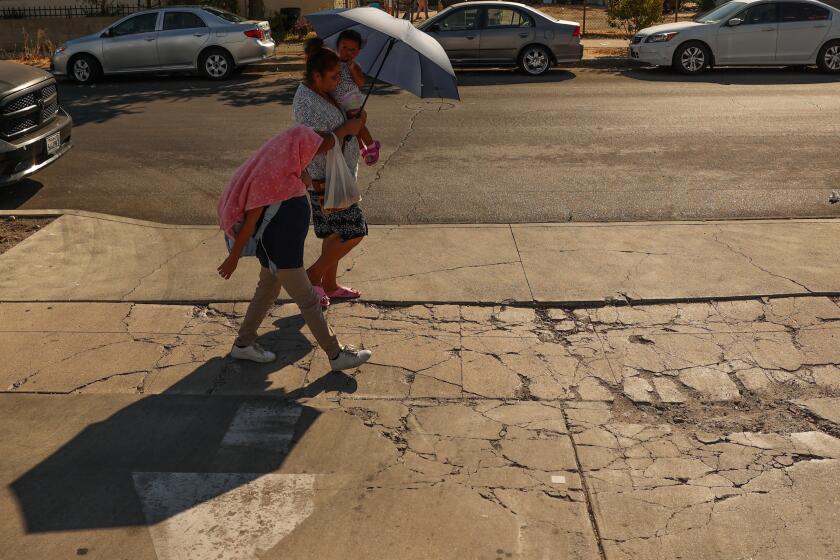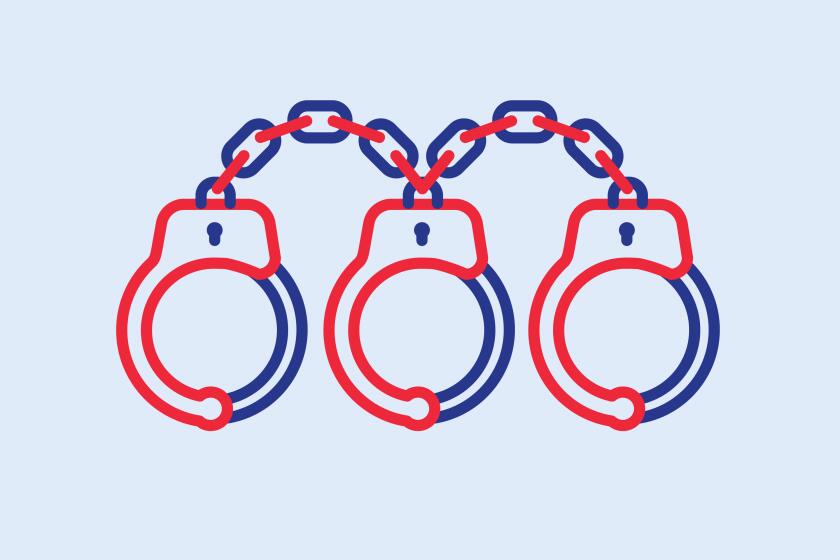O.C.’s medical pot plans advance
Orange County supervisors narrowly passed a measure Tuesday to move forward with licensing guidelines for medical marijuana use, but the proposal faces an uphill battle before it can actually become law.
On a split vote, supervisors approved an amended measure directing staff to draft regulations for county-issued medical marijuana identification cards and to study issues such as how other county health departments and law enforcement agencies have dealt with implementing the new rules.
For the record:
12:00 a.m. April 20, 2007 For The Record
Los Angeles Times Friday April 20, 2007 Home Edition Main News Part A Page 2 National Desk 1 inches; 50 words Type of Material: Correction
Medical marijuana: An article in Wednesday’s California section on a proposal to issue medical marijuana identification cards in Orange County said Supervisor Patricia Bates voted against the initial proposal. It should also have mentioned that she voted “yes” when the issue was amended to include further study and was passed.
But at best it was a lukewarm endorsement. An initial vote to simply draw up the law failed -- raising questions about whether it will have enough support to become law when it comes back before the board in three months.
The vote came after hours of testimony in which dozens of patients and advocates told how marijuana had eased their symptoms and affirmed their desire to use it despite the legal risks.
The state’s Department of Health Services estimated in 2004 that there were 16,000 patients in Orange County who would be eligible to participate in the medical marijuana system.
“I’m a medical marijuana user, and I’m not a criminal,” said Marla Jones, 46, of Huntington Beach, who was encouraged to use marijuana by her doctor to treat pain from necrotizing fasciitis, the flesh-eating disease, and an amputated leg.
“An identification card would be very helpful; my husband gets my medication from a dispensary. If he’s stopped, he could get arrested for helping me.”
The proposal, if adopted, would create a system to identify patients eligible to use marijuana for medical purposes and issue them identification cards, as well as validate prescriptions and monitor the qualifications of medical care providers who dispense the drug.
Thirty-two other counties in the state have already set up the system; Los Angeles County is expected to launch its version June 1.
But most supervisors appeared hesitant Tuesday to wade into an emotionally charged issue while the conflict between state and federal law remained unsettled.
Supervisors Patricia Bates, Janet Nguyen and Bill Campbell voted against the initial proposal to move forward with drafting the law, and Chris Norby and John Moorlach voted for it; Campbell changed his vote on the compromise proposal to give it the majority needed.
Still, Campbell said he would support a wait-and-see approach until court decisions clarified whether counties had legal authority to issue the cards.
San Diego County lost a court case against the state that alleged it was being forced to violate federal law. It has appealed the decision.
Studies have found that marijuana helps patients who have cancer, HIV and other debilitating diseases overcome pain, nausea and loss of appetite, which contribute to wasting and which are sometimes caused by other medications prescribed to treat illnesses.
California voters adopted Proposition 215 by 56% in 1996. It allowed doctors to recommend marijuana to patients; the state passed a law in 2004 laying out requirements for counties to begin regulating users and care providers.
But federal law still treats marijuana as an addictive controlled substance with no medical value, and the U.S. has so far resisted efforts to change the designation or give states leeway to make their own rules.
Dist. Atty. Tony Rackauckas testified against the county proposal, saying he feared it would be abused by people who wanted to use the drug to “escape from the realities of life.”
The Sheriff’s Department also cautioned that the card system would not change the way deputies handled people found to possess marijuana for medical purposes, which includes seizing their drugs and doctor’s notes, even though they might not be arrested or prosecuted.
Norby, the board chairman, carried the proposal and strongly urged colleagues to support it.
“If this is something that can give them relief, we need to start a process today that can accommodate that,” he said. “The feds are really out of line on this, and I think it’s up to us to lead them.”
*
christian.berthelsen@latimes.com
More to Read
Sign up for Essential California
The most important California stories and recommendations in your inbox every morning.
You may occasionally receive promotional content from the Los Angeles Times.










